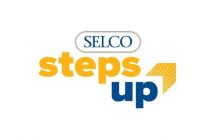On December 3, 2102, an Oregon homecare provider and the U.S. Department of Justice reached a settlement agreement on claims of discrimination in violation of the Immigration and Nationality Act (“INA”). Commentary by Kyle Abraham, Barran Liebman
The claims stemmed from the employer’s use of E-Verify to confirm employment eligibility for a new employee. E-Verify is the Internet-based program maintained by U.S. Citizenship and Immigration Services that compares data provided on an individual’s Form I-9 to data in the Department of Homeland Security’s (“DHS”) and Social Security Administration’s (“SSA”) records on the same individual.
In this case, the employer received a “Tentative Nonconfirmation” (“TNC”) notice, which means the data on the Form I-9 for the individual was different from either DHS or SSA records for the individual. In response to the TNC, the employer violated the INA in three ways: First, it failed to provide a copy of the TNC to the employee, which would have presented the employee with an opportunity to contest the mismatched data. Second, the employer demanded the employee produce an alien card or naturalization papers to show proof of employment eligibility; however, an employer is not permitted to request a specific identity document from an employee. Finally, the employer did not allow the employee to start working while contesting the TNC, which is required by the INA. As result, the employer agreed to pay a $1,210 fine, $525 in back wages and to be monitored by the Justice Department for eighteen months.
With the exception of government contractors, federal law does not require employers to participate in E-Verify, but various local and state laws may require participation. Participation in the E-Verify program mandates that employers enter into a Memorandum of Understanding (“MOU”) with DHS. The MOU includes a laundry list of obligations for employers, which mirrors the requirements from the INA. In addition to the requirements listed above, employers participating in E-Verify are also required to display a participation poster, identify company representatives to be responsible for and a point of contact regarding E-Verify, ensure that the representatives are familiar with E-Verify manuals and procedures, and cooperate with investigations by DHS and SSA.
In light of the myriad of compliance issues, employers that are not required to participate may ask, “Is there any benefit to voluntary enrollment in E-Verify?” The benefit of participating in E-Verify is that it provides an employer a rebuttal presumption that the employer did not illegally hire an unauthorized alien in violation of the INA.
Steps for employers:
Employers should review the law of their jurisdiction to determine if enrollment in E-Verify is required to avoid penalties for non-participation. Participating employers should carefully review the MOU to ensure compliance with the regulations and procedures of the program. In the event questions remain, employers should consult an employment attorney.
*****
Electronic Alerts are written by Barran Liebman attorneys for their clients and friends. Alerts are not intended as legal advice, but as employment law, labor law, and employee benefits announcements. If this has been forwarded to you, and you would like to begin receiving Electronic Alerts directly, please email Traci Ray at tray@barran.com. Copyright © 2013 by Barran Liebman LLP.




